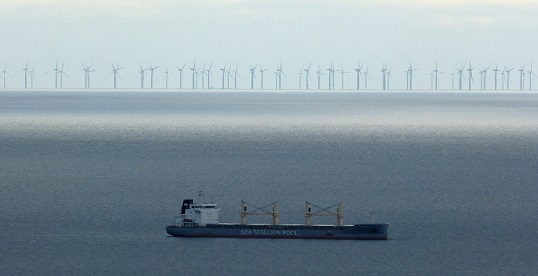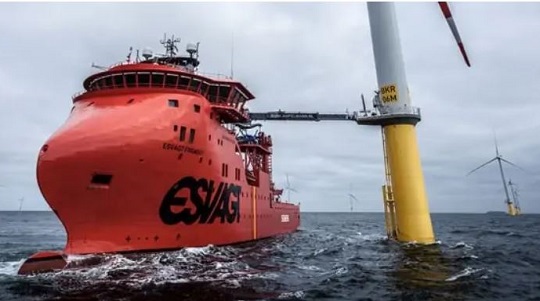- Topics
- Campaigning
- Careers
- Colleges
- Community
- Education and training
- Environment
- Equality
- Federation
- General secretary message
- Government
- Health and safety
- History
- Industrial
- International
- Law
- Members at work
- Nautilus news
- Nautilus partnerships
- Netherlands
- Open days
- Opinion
- Organising
- Podcasts from Nautilus
- Sponsored content
- Switzerland
- Technology
- Ukraine
- United Kingdom
- Welfare

Nautilus met with Danish offshore renewables company ESVAGT at the tail end of 2022 to discuss a potential expansion in the UK and explore union recognition.
The company operates in the Barents Sea and Norwegian, UK, Danish, Belgian and German sectors of the North Sea. Approximately 10% of its oil and gas operations are in the UK and it intends to expand further into the UK renewables sector.
ESVAGT operates 43 vessels, including 34 ERRV/Multirole and nine SOVs, and a dedicated crew change vessel that handles 25% of crew change every two weeks. It also has two SOVs under construction.
All ESVAGT vessels are flagged to the Danish register and crewed mainly with Danish seafarers. It hires approximately 150 -250 new colleagues annually, depending on new ships, contracts and staff turnover.
Currently, ESVAGT has 1,200 offshore employees, made up of 900 ESVAGT employees and 300 agency workers. Agency crew are treated as ESVAGT crew, according to the company, including significant investment in training and development.
Crewing needs
ESVAGT has said it would like to hire a minimum of 40% UK seafarers employed on contracts on the UK continental shelf.
This represents a target of 120 UK seafarers by December 2024, including permanent crew, agency workers and cadets.
As of October 2022, ESVAGT had seven active UK cadets onboard its fleet and it expects to bring cadet intake to a total of 15 as the company expands its operations.
Masters and chief engineers are promoted from within the company and not recruited externally.
Deck departments consist of a captain, chief officer and two first officers plus one able seaman (AB).
Engine departments consist of a chief engineer, first engineer and either a junior engineer or a second engineer. There are no greasers/oilers/fitters or welders onboard because Danish officer education covers this.
ESVAGT says that connectivity onboard is good for OSVs, with Wi-Fi available at all windfarms and oil and gas vessels are connected to ‘industry standards’.
Nautilus representation
Nautilus is well placed to represent maritime professions in this developing market, and there is clearly going to be greater demand for labour and re-skilling. Members interested in working for and union recognition at the company can contact their industrial organiser: industrial@nautilusint.org

Renewables on the rise
Renewables are playing an increasingly important role in delivering a cleaner low-carbon energy mix as the UK aims to phase out coal-fired power plant by 2025.
Renewable capacity includes hydro, wind onshore, wind offshore, solar PV and bioenergy. Offshore wind has been identified as the highest growth capacity (8.4%), accounting for 49% of the total UK growth at the end of 2021.
The Government has set the industry a target of 50GW of offshore wind by 2030 as a key part of its Energy Security Strategy, in response to rocketing international gas prices caused by Russia’s invasion of Ukraine – almost a fivefold increase from 11.3GW in August 2022.
The UK enjoys a long coastline with good wind speed and relatively shallow seabed, ideal for offshore wind farms.
The sector is expected to treble over the next decade, and thousands of workers will be required to support the construction, operation and maintenance of these clean energy power plants.
Between 2022 and 2030 £155bn of private investment in new offshore wind projects is expected, with average spend of over £17bn a year.
Tags
More articles
ETF update: how Nautilus members can help set the agenda in Europe
What priorities do you think the European Transport Workers' Federation should have when fighting for your rights in Europe?
